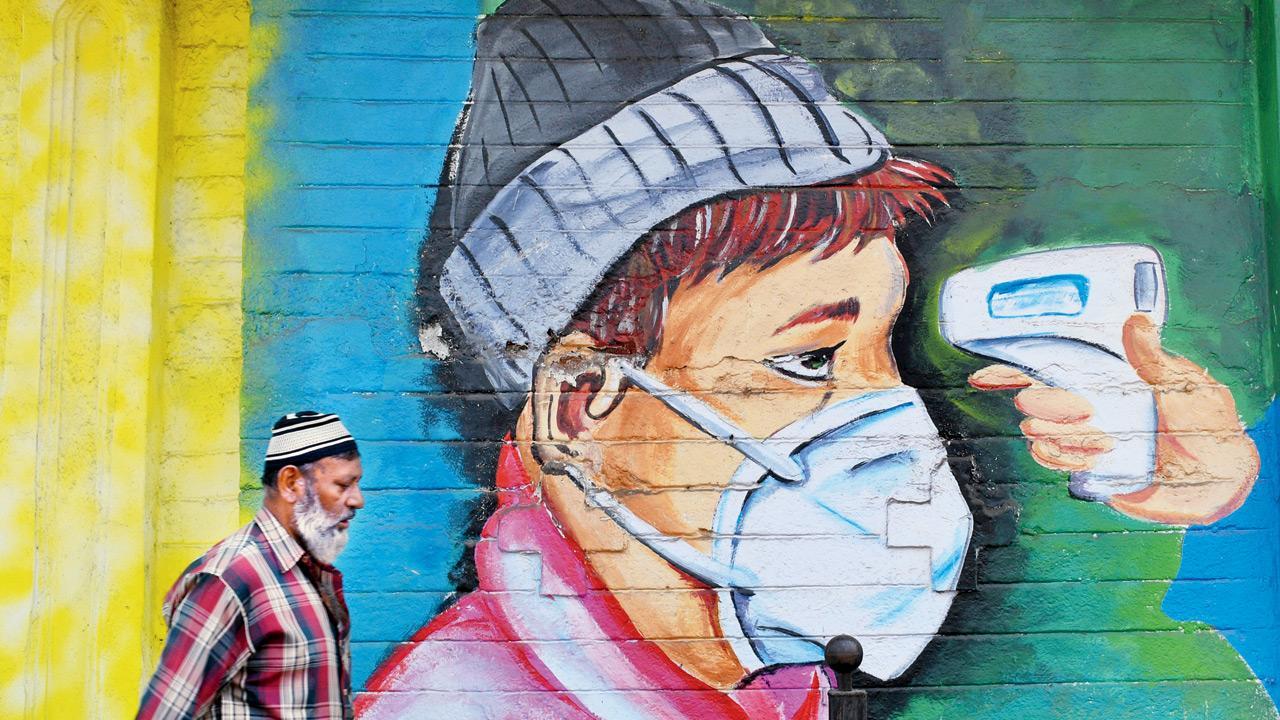Expats in China are likely to travel back to India from Jan 15 for Chinese New Year holidays; stay on guard, suggest experts
Follow COVID-appropriate precautions, experts say
Listen to this article
Mask up to combat HMPV: Experts urge vigilance amid rising respiratory infections in China
x
Be alert, no need to panic,” is how the health experts in India are reacting to the recent outbreak of HMPV (Human Metapneumovirus,) a virus that causes upper respiratory infections, similar to a cold. It’s a seasonal disease that usually occurs in the winter and early spring.
However, experts have cautioned that the public need to adhere to COVID-19-appropriate behaviour of wearing masks in crowded areas, and sanitising hands. This is especially important as many Indians settled in China usually travel back home for the month-long Chinese New Year holidays starting from January 15.
Dr Wiqar Shaikh, a former Professor of Medicine at Grant Medical College, and a well-known allergy and asthma specialist, has been closely monitoring the surge in upper and lower respiratory diseases in China caused by the HMPV virus since last few days and has since raised concern.
Dr Wiqar Shaikh and Dr Subhash Hira
Dr Shaikh said, “HMPV cases were first reported from Henan province in Northern China, and it is spreading rapidly.” He added that HMPV mostly affects children and the elderly and is already overwhelming hospitals in China.
Dr Shaikh said HMPV was discovered in 2001 and belongs to the “pneumoviridae” family. He added that the test to confirm HMPV in the laboratory is the reverse transcriptase polymerase chain reaction (RT-PCR), which can also quantify viral load. He explained that the symptoms of HMPV and Covid-19 are similar—it spreads primarily through droplets and direct contact. However, there is as yet no specific vaccine or medication for HMPV and treatment is mainly symptomatic.
China is also facing a surge in other viruses including Influenza-A, Mycoplasma pneumoniae and COVID-19. It is reported that children’s hospitals in China are flooded with increasing cases of pneumonia. Dr Shaikh explained that symptoms of HMPV include fever, cold, cough, sore throat and breathlessness and could lead to bronchitis and pneumonia.
He said that although no cases of HMPV have as yet been reported from India, our country needs to be careful, especially since China is a neighbouring country. He concluded that our best friend is the “mask” and cautioned that the authorities must screen all flyers arriving from China.
“The World Health Organization (WHO) in future will use the term Disease X for such potential threats of any currently unknown pathogen that could cause a pandemic. HMPV does not yet fit the criteria of being declared Disease X but it has pandemic potential under certain circumstances. Human Metapneumovirus (HMPV) is a significant cause of respiratory illness, and death in 10-80 per cent of infected persons in some published studies. Epidemics of HMPV are likely to occur, particularly during the respiratory virus season, which usually peaks in the fall and winter months. The patterns of HMPV outbreaks can vary by region, and factors such as climate, population density, and public health preventive measures influence the spread of the virus. HMPV can be complicated by the presence of other respiratory viruses, such as influenza A and Corona viruses, further complicating diagnosis and public health response,” said Dr Subhash Hira, professor of global health at University of Washington-USA and former advisor of WHO-TDR Geneva, who continues to be on the pandemic preparedness committee.
“Influenza A is a well-known virus responsible for seasonal flu outbreaks and can also cause pandemics. While it is a significant public health concern, it is not classified as ‘Disease X’ since it is already understood, characterized, and studied extensively. Surveillance efforts are essential to understand the epidemiological trends and the potential impact of respiratory viruses on public health,” added Dr Hira.
Symptoms of HMPV, so far, have not been severe and generally cause mild illness—like fever, cold and cough, runny nose etc. Preventive COVID-19 appropriate behaviour like frequent handwashing, wearing masks, avoiding crowded or poorly ventilated spaces can be advisable to keep the spread under control, Dr Shaikh has advised.
“Exciting news! Mid-day is now on WhatsApp Channels Subscribe today by clicking the link and stay updated with the latest news!” Click here!
